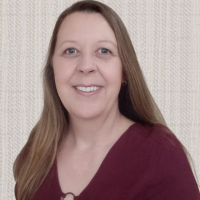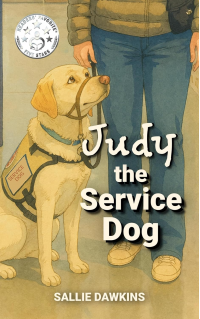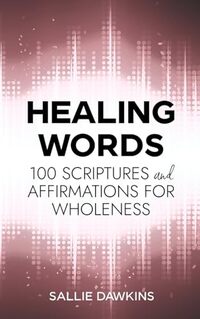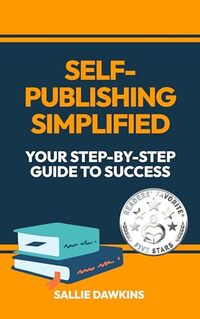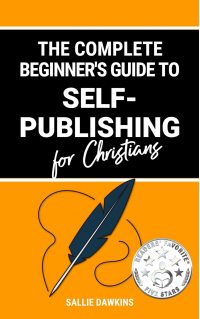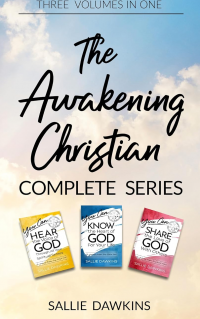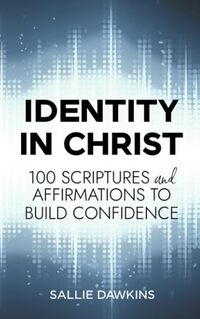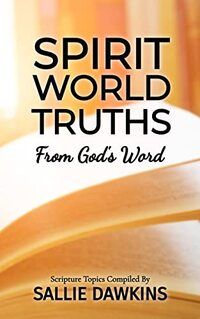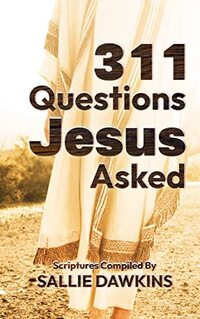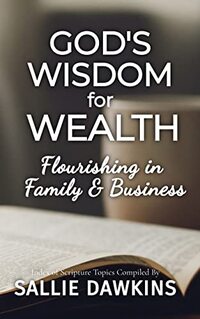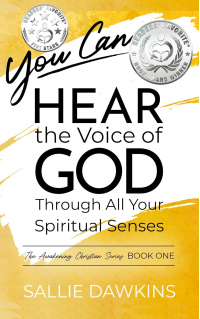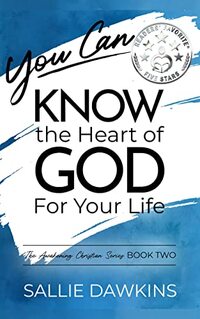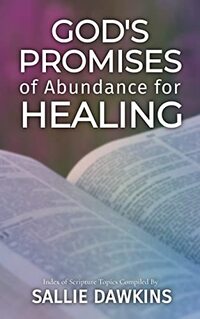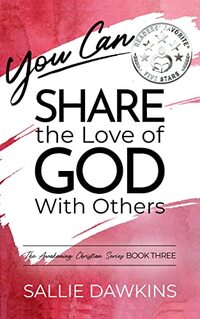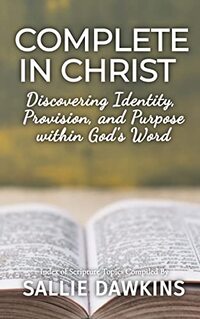Sallie Dawkins's Books
Stay in the loop on books by Sallie Dawkins. See upcoming and best-selling books by the author here. You'll also find the deals on books by Sallie Dawkins.
** Please note that the information or price displayed here may not be the updated. Make sure to double-check the latest book price before buying books.
** Also, there might be other books by Sallie Dawkins not listed on AllAuthor.
| Book |
|---|
Healing Words: 100 Scriptures and Affirmations for WholenessPublish: Oct 26, 2023Advice & How To Religion & Spirituality |
Self-Publishing Simplified: Your Step-by-Step Guide to SuccessPublish: Feb 17, 2025Advice & How To Business |
The Complete Beginner's Guide to Self-Publishing for ChristiansPublish: Aug 21, 2023Advice & How To Biographies & Memoirs Christian Nonfiction Religion & Spirituality |
Maggie's Legacy: Lessons in Spiritual Obedience Learned from My Border Collie (Open Ark Series)Publish: Dec 25, 2022Series: Open Ark SeriesAdvice & How To Biographies & Memoirs General Nonfiction Christian Nonfiction Religion & Spirituality |
The Awakening Christian: Complete SeriesPublish: Nov 13, 2023Biographies & Memoirs Christian Nonfiction Religion & Spirituality |
Identity in Christ: 100 Scriptures and Affirmations to Build ConfidencePublish: Aug 14, 2023Religion & Spirituality |
God's Wisdom for Wealth: Flourishing in Family & BusinessPublish: Apr 25, 2022Religion & Spirituality |
#1 Best SellerYou Can Hear the Voice of God Through All Your Spiritual Senses (The Awakening Christian Series Book 1)Publish: Nov 15, 2021Series: The Awakening Christian SeriesBiographies & Memoirs Christian Nonfiction Religion & Spirituality |
You Can Know the Heart of God for Your Life (The Awakening Christian Series Book 2)Publish: Nov 19, 2021Series: The Awakening Christian SeriesBiographies & Memoirs Christian Nonfiction Religion & Spirituality |
God's Promises of Abundance for HealingPublish: Mar 19, 2022Christian Nonfiction Religion & Spirituality |
You Can Share the Love of God with Others (The Awakening Christian Series Book 3)Publish: Nov 19, 2021Series: The Awakening Christian SeriesBiographies & Memoirs Christian Nonfiction Religion & Spirituality |
Complete in Christ: Discovering Identity, Provision, and Purpose Within God's WordPublish: Apr 07, 2022Religion & Spirituality |
Sallie Dawkins's Series in Order
It's exciting to find a book series to follow! Discover the whole new world of book series created by Sallie Dawkins.
** Also, there might be other book series by Sallie Dawkins not listed on AllAuthor.
Sallie Dawkins's Awards and Achievements
-


Readers' Favorite Book Award BRONZE MEDAL
2024The Complete Beginner's Guide to Self-Publishing for Christians
award -
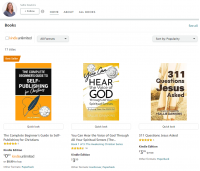

AMAZON BEST SELLER
2023The Complete Beginner's Guide to Self-Publishing for Christians
achievement -
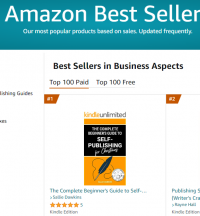

Best Seller Status
2023The Complete Beginner's Guide to Self-Publishing for Christians
achievement -


Readers Favorite Book Award FINALIST
2023Maggie's Legacy: Lessons in Spiritual Obedience Learned from My Border Collie (Open Ark Series)
award -
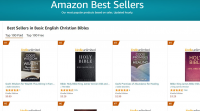

Best Seller Status
2022God's Wisdom for Wealth: Flourishing in Family & Business
achievement -
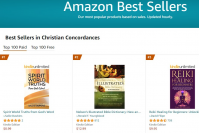

Best Seller Status
2022Spirit World Truths from God's Word
achievement -


Best Seller Status
2022311 Questions Jesus Asked
achievement -
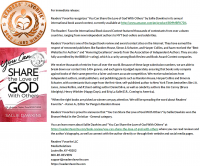

Readers Favorite Book Award BRONZE MEDAL
2022You Can Share the Love of God with Others (The Awakening Christian Series Book 3)
award -
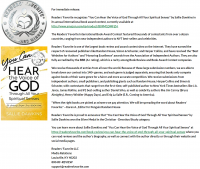

Readers Favorite Book Award SILVER MEDAL
2022You Can Hear the Voice of God Through All Your Spiritual Senses (The Awakening Christian Series Book 1)
award -


The Global Book Awards
2022You Can Hear the Voice of God Through All Your Spiritual Senses (The Awakening Christian Series Book 1)
award -


Best Seller
2021You Can Hear the Voice of God Through All Your Spiritual Senses (The Awakening Christian Series Book 1)
achievement -


Best Seller Status
2021You Can Know the Heart of God for Your Life (The Awakening Christian Series Book 2)
achievement -


Best Seller Status
2021You Can Share the Love of God with Others (The Awakening Christian Series Book 3)
achievement
Sallie Dawkins has earned excellence awards over time. Here is the glimpse of the accolades clinched by the author.
Sallie Dawkins Interview On 08, Sep 2023

Ask Sallie Dawkins a Question
Have brimming questions to ask author Sallie Dawkins? Ask whatever you like, but keep it appropriate.
** Please note that unanswered questions will not appear on the page. Refrain from posting promotional messages.
